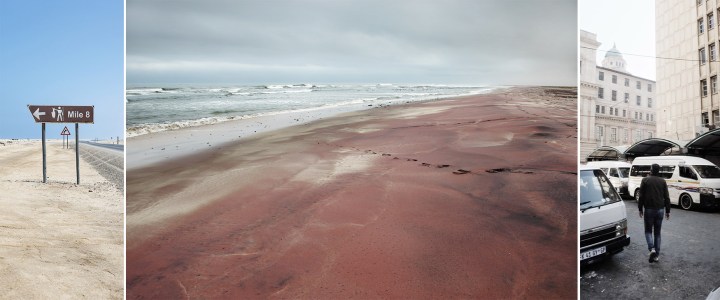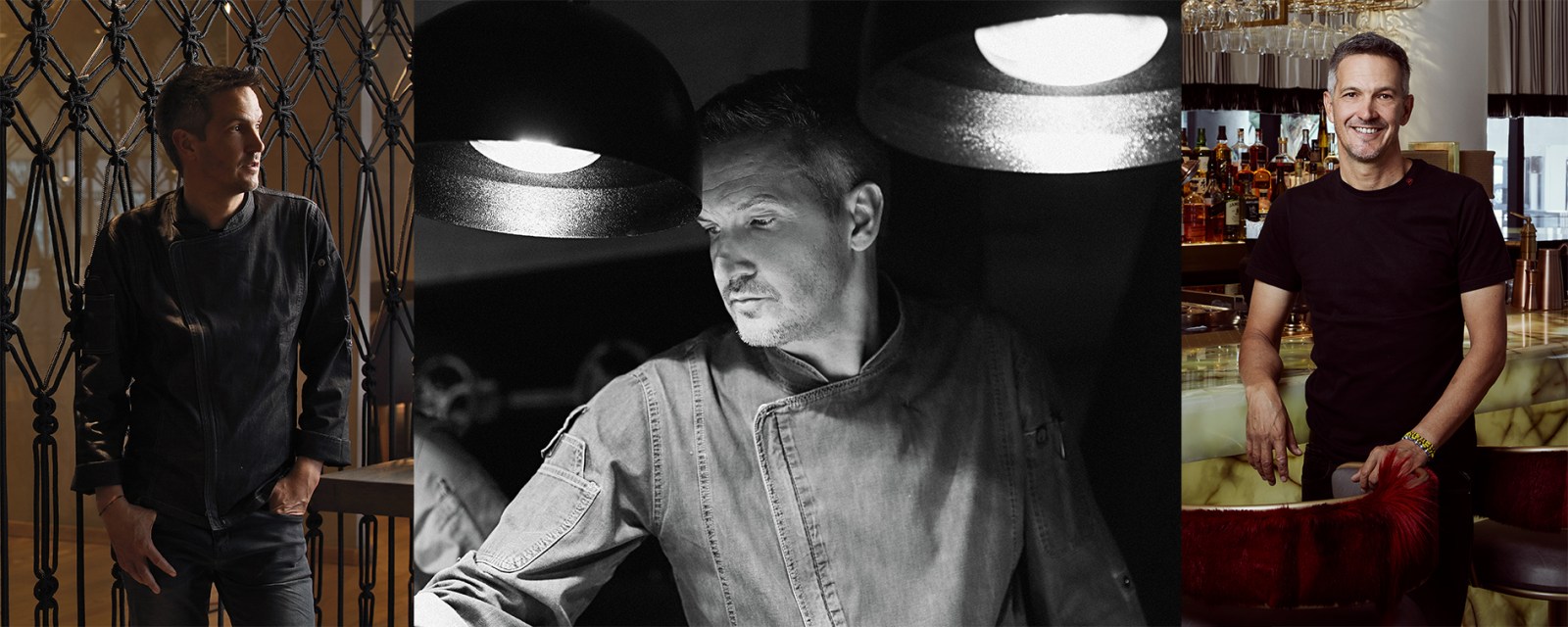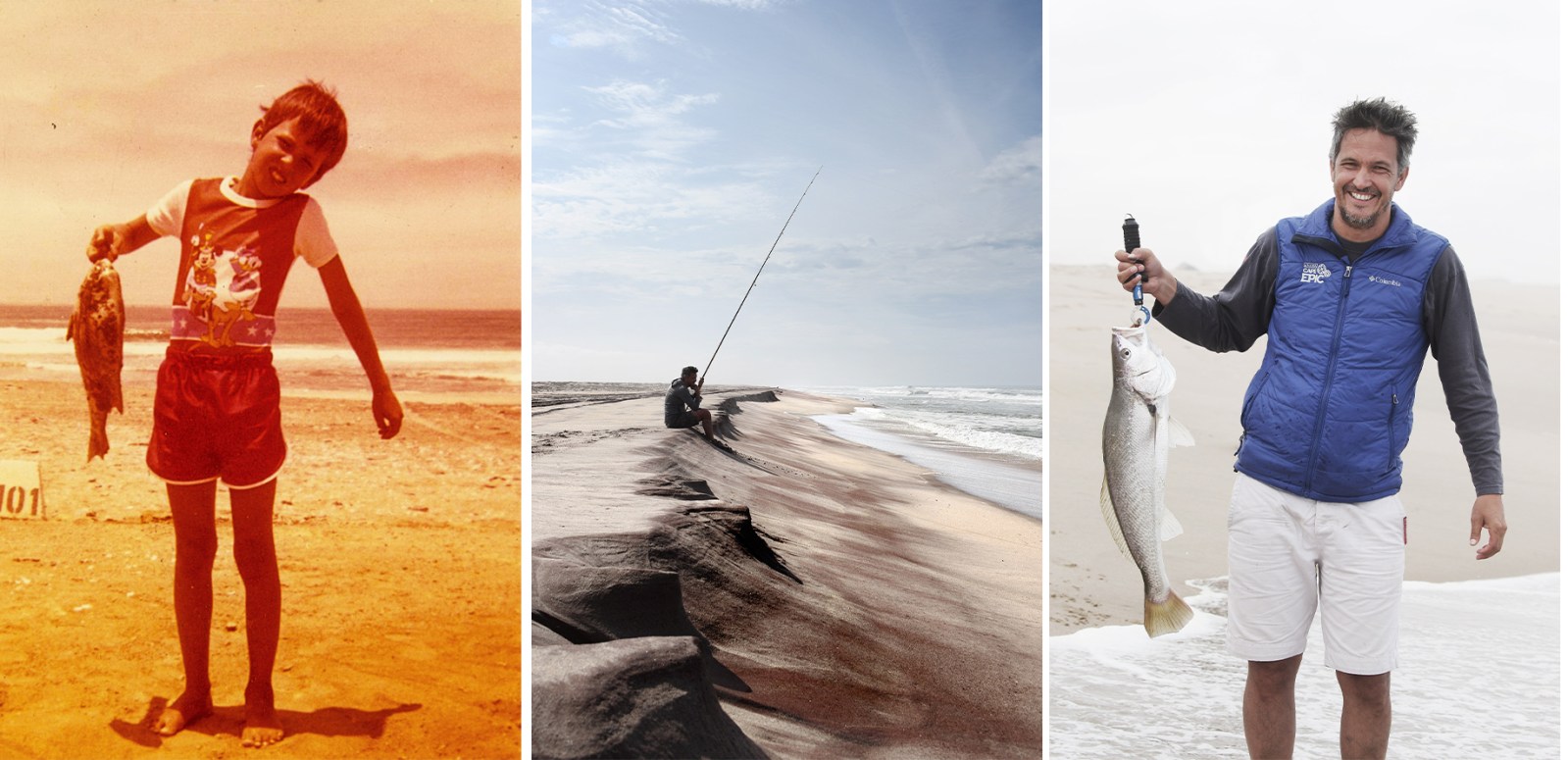SAND MAN
How Joburg stole the heart of a top Cape chef

Cape Town had David Higgs’s cuisine and talent for three decades, though he was a child of the Namib desert. Then, in one day, Johannesburg captured his heart. He’s been there ever since. We asked him why.
Joburg people move to the Western Cape all the time. Not many leave Cape Town to find their fortune in the City of Gold. But David Higgs did. Even he didn’t see it coming.
David Higgs has Namib beach sand between his toes and seafood in his heart. He is a man of firm resolve whose conviction that cooking in a professional kitchen was his future was evident the first time I set eyes on him. We were both in an evening class at Bill Stafford’s cookery school in Cape Town, and he paid such rapt attention to what we were being taught that I’ve never forgotten it.
He seemed very young, but when we chatted at the weekend it became evident that he was already fairly advanced in his cooking ambitions, having started out in 1989 as a breakfast chef at the Tulbagh Protea Hotel on the Cape Town Foreshore, a humble start given the ultimate trajectory of his career.
Higgs became a firm fixture on the Cape restaurant scene for many years. Then, out of the blue, Johannesburg came calling.
I remember many eyebrows being raised when, around the time of the Soccer World Cup in 2010, Higgs suddenly disappeared from the Winelands restaurant scene just when he had reached the pinnacle of Rust en Vrede, where he was kitchen supremo, being chosen as the country’s best restaurant.
“I came up to Joburg when I was 40, which was 14 years ago, and there was no initial attraction at all. I was working on a wine farm in Stellenbosch; we were just voted best restaurant and it was an incredible space, Rust en Vrede, and still is. And there was an offer from somebody that I knew, somebody that I’d worked for before and he said, ‘please, I need some help’.
“It was this hotel that had opened for the World Cup and it was a bit of a rush job and it basically imploded after the World Cup and he just wanted me to come and give a hand.”
David was unprepared for the life change that was about to happen. That day.
‘There was a pool party going on’

David at Marble, Saint and Zioux, all in Johannesburg. (Photos by Elsa Young | collage Tony Jackman)
“Landed in Joburg. The Gautrain had just started. Jumped onto the Gautrain, whizzed through into Sandton. World class. And then I walked across the road into the hotel and it was a Sunday afternoon and there was a pool party going on. Obviously no beaches, no mountains, no vineyards.
“There was a beautifully integrated crowd, not something we were always used to in the Cape. And I spent the afternoon talking to a young black architect by the name of Benedict, and it was just such a good energy. I didn’t even go for the interview, I just phoned the guy, Herman, and I said, ‘I’m in. I want to be in this city’.”
Higgs found, in his instant new home, “a vibrant city, an integrated city. It was the energy of the city. Talking to someone later on, I said, ‘I love the energy of the city’ and they said, ‘You must understand that Joburg exists because of the Gold Rush, and hasn’t really changed; there’s massive opportunity here, everything moves at 100 km an hour, there’s no real off time, there’s no real off season.’
“It’s not like Cape Town where it ebbs and flows and so forth. And I feel that. I love this city and have made it my home, more than Cape Town has ever been.”
The Joburg that Higgs fell in love with is a melting pot of Africa.
“How it relates to other cities, the Singapores, the Londons and the New Yorks, is that Joburg is a melting pot of African countries, west, east and southern Africa, and with that comes an incredible vibrancy: art, music, food, fashion.”
Though he has fallen in love with the Golden City, he wasn’t “a Joburg boy at all” as a kid, “never spent any time there at all other than in the army once or twice”, he says.
‘I grew up in a desert’

David fishing, then and now. (Photos by Elsa Young | collage Tony Jackman)
But he wasn’t a Cape Town boy either. Walvis Bay in Namibia was his home for the first 10 years of his youth.
“My dad worked at a fishing factory, he was a storeman there and we used to go fishing before school and drive over the salt pan in a Land Rover, catch a couple of fish, and essentially that’s what we ate. All this fucking talk about farm to table and head to tail, we were doing it in the seventies, sixties, fifties, I mean, fuck, way before. Now it’s just a marketing thing that you throw around. And that’s again where the fishcakes came from and nothing was wasted and so forth.
“But obviously, then, the fish were running properly in the seventies and eighties, so what we would do is we would catch fish, freeze and then on holidays go up to the farmers and barter. We would get a couple of cattle or a cow and a sheep, and then hunt for game.
“My dad was very good with his hands, he used to build cars and trailers and that kind of thing as a hobby and we always had hydroponics in the backyard, because obviously I grew up in a desert so you couldn’t plant anything, it was all salt. So then you start understanding food from a young age, you know?”
So that was where and when David Higgs’s story with food began, with fishing and hunting. It’s no surprise, then, that celebrity does not seem to interest him. He’s a man of the braai and the fireside, of the flame that cooks the meat, more, I suspect, than the one that ignites all the hype that surrounds him. If hype is a fair word, because the facts of his career are real and substantial: he has run a slew of high-grade restaurants, is a founding partner in eateries including Saint, Marble and Zioux; his wonderful gourmet store, Pantry, craftily set on a petrol station forecourt where cool jazz soothes you from hidden speakers; all of his television appearances, and his classy book, Mile 8. Coming soon, set for late 2024, is Marble Cape Town, in a Waterfront rooftop venue.
‘I’ve got a few Jacob Zumas, some Donald Trumps’
The art of the Golden City has become a passion and a hobby. His home is filled with eccentric, colourful art by South African artists, particularly Jozi ones.
He has in his Johannesburg home, for instance, a fascinating collection of original art, though would rather not call himself “a collector” as such.
“My home has some nice art in it, some valuable, some not so valuable, and I love political art. I’ve got quite a few Jacob Zumas, I’ve got some Donald Trumps and that kind of thing, but obviously satirical; the Brett Murray stuff, I’ve got a painting of the recyclers of Joburg up, and [neo pop artist] Richard Scott’s The Vibrancy, a big Johannesburg piece, it’s just my love for Joburg.” He also cites Nelson Makamo and Willem Boshoff, “who did all the numbers and the letters and the lettering”.
“The reason for the political art is almost like a reminder of the ludicrousy of the last couple of years, the Zumas, the Trumps, the English lad; may we never forget these guys,” he chuckles wryly.
‘You can’t win everything one year and nothing the next’
David tends not to comment on controversial aspects of national restaurant awards, but when asked for his views, he drew a clear differentiation between the fine dining restaurants that tend to win these awards, and “large format restaurants”, his own Marble being an example of the latter.
There’s space, he says, for two genres of judging: the fine dining end, which is the pinnacle of dining in South Africa but which feeds “less than one per cent of our population”, and whose clientele comprises mostly of foreigners, and large-format restaurants which might feed up to 300 or 400 people a day, a massive and difficult undertaking.
“And I’m not talking about the Marble group, I’m talking about everybody else; there are so many of us around.”
He found some of the awards handed out in 2024 “questionable”, adding that he rarely has time to eat out so chooses very carefully when he does find the time. He did not name the “questionable” choices, but anyone who has examined who won what last year can probably have a shrewd guess.
“I think there’s space for two different types of awards because there are two different types of restaurants, and I definitely think there needs to be consistency within the judging.
“You can’t go from winning everything one year and then nothing the next year, you know? It’s fucking impossible; no one’s that inconsistent. And there I’m talking about other restaurants, I’m not talking about Marble.”
What real life is about for this man is hard work, every day, every month, every year, and never stinting. In a big, fat restaurant made of Marble in the city he loves, serving hundreds of plates of food a day.
You have to think: who needs awards when you have all that?
Coda
The boy from Walvis Bay, fishing for the pot, hunting the beast, the hot sting of desert sand on his cheek. The grown man in Johannesburg, an exponent of the beguiling Gold Rush city that has never lost touch with its roots. And he in his Marble lair, fanning the flames that fire fine meats that link the man to the boy. DM





“There was a beautifully integrated crowd, not something we were always used to in the Cape.”
Still is the case. In fact, have heard recent semigrants extolling the Cape’s segregation as a pull-factor, with nary an opposing word in self-described liberal, white circles.